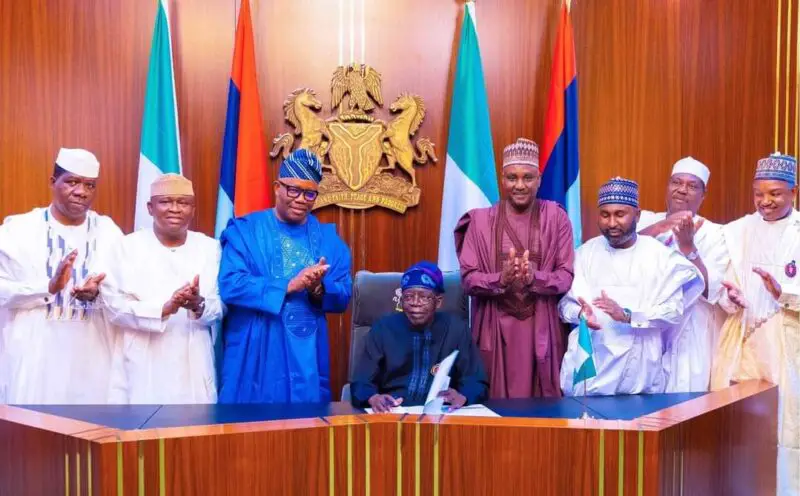President Bola Tinubu has signed the minimum wage bill into law, increasing the national minimum wage from ₦30,000 to ₦70,000.
The signing ceremony took place at the State House in Abuja on Monday, following months of deliberations between government authorities, labour unions, and the private sector.
The new law comes amid soaring inflation, with Nigeria’s inflation figure hitting 34% in June 2024, according to the National Bureau of Statistics (NBS). The move is seen as a fulfillment of President Tinubu’s campaign promise to pay a living wage to Nigerian workers.
Labour unions had initially proposed a new minimum wage of ₦494,000, but after a series of negotiations, a consensus figure of ₦70,000 was reached.
The ₦70,000 minimum wage will be subject to a triennial review, ensuring that it remains aligned with the country’s economic realities and the needs of Nigerian workers.
The signing of the bill was witnessed by a National Assembly delegation led by Senate President Godswill Akpabio and members of the House of Representatives.
Special Adviser to the President on Senate Matters Basheer Lado hailed the move as a “promise kept” and a demonstration of President Tinubu’s people-centric governance model.








![Breaking: Nationwide Strike Looms As Labour Declared Industrial Action Over New Minimum Wage At least 40 dead in Moscow concert hall attack, Ukraine Denies Involvement Rivers Assembly Overrides Fubara, Enacts New Law Breaking: Former Community Youth Leader, Four Others Shut Dead in Egbema, Imo State [VIDEO] Tragic Incident in Enugu: Mother of Three Commits Suicide After Abandoning Children at Police Station BREAKING: Three-storey building collapses as Ebute Metta, Lagos Akwa Ibom pastor Solid Rock Church, Apostle John Okoriko abia uturu student gunmen Asuu suspends strike bonny lga chairman Hon. David Rogers Irimagha Another Kidnapped Victim, Suleiman Sabo rescued by Police In Abuja](https://reportafrique.com/wp-content/uploads/2020/12/report-afrique-breaking-news-260x195.jpg)

Join our Channel...